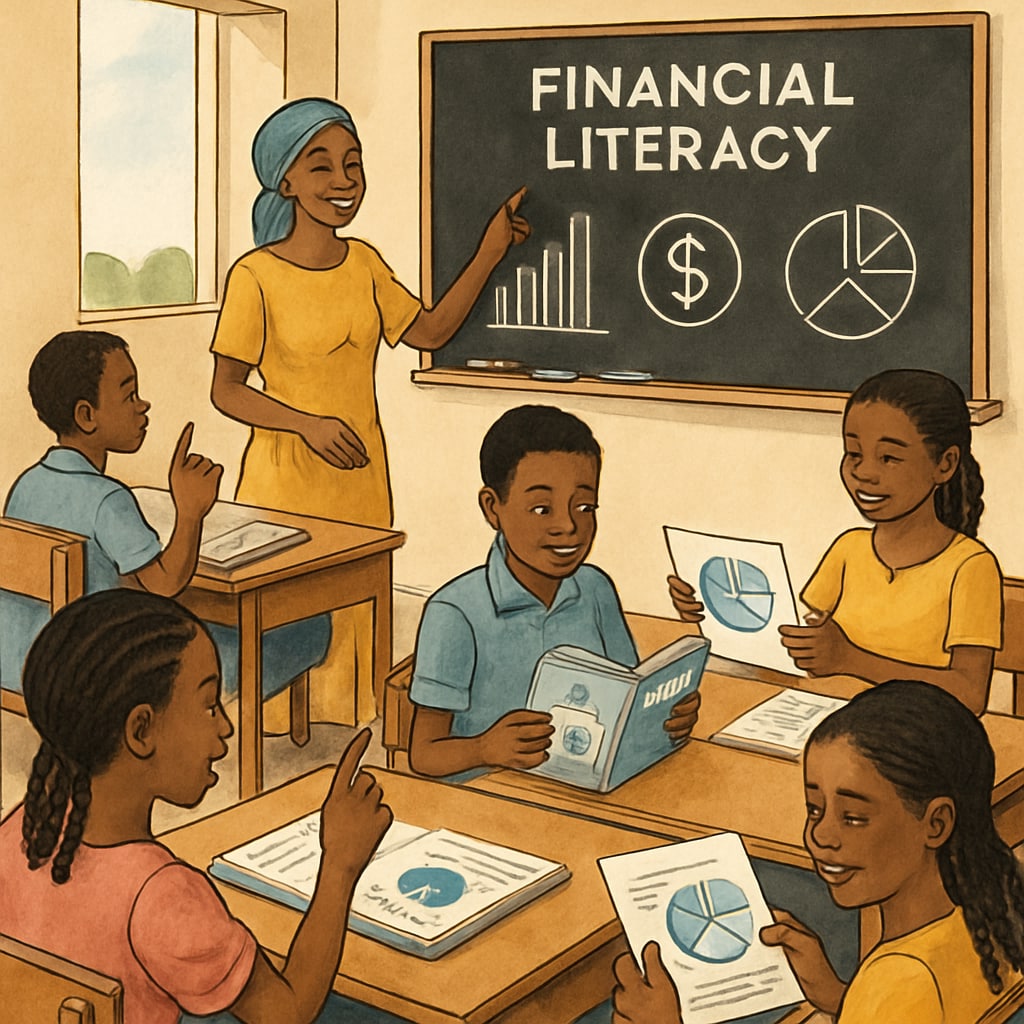In developing countries such as Mali, pursuing a financial career presents unique challenges and opportunities. Students often face decisions about study abroad options, self-learning, and navigating limited local resources. To bridge these gaps, K12 education systems must adapt to provide financial literacy and career planning from an early age, fostering a generation of skilled financial professionals. This article explores how targeted education reforms can pave the way for students to excel in finance and contribute to their country’s development.
Building Financial Literacy in K12 Education
One of the most critical steps toward developing financial careers in Mali is integrating financial literacy into the K12 curriculum. Financial literacy encompasses understanding basic economic principles, personal finance, and the global financial system. For example, teaching students how to budget, save, and invest can empower them to make informed decisions in their personal lives and future careers.
In addition, practical exercises such as creating mock investment portfolios or managing simulated small businesses can make learning engaging and relevant. Programs like these not only spark interest in financial careers but also provide students with a foundation in analytical and decision-making skills.

Overcoming Limited Local Opportunities
Despite the potential benefits of financial literacy education, students in developing nations like Mali often face limited career opportunities in the local financial sector. Many graduates struggle to find roles that match their skills, leading them to explore study abroad programs or alternative paths such as entrepreneurship. However, these options come with their own obstacles, including high costs and competitive admission processes.
To address this, governments and schools can collaborate with local financial institutions to create internships, mentorship programs, and scholarships. For instance, partnerships between schools and banks could offer students a chance to gain hands-on experience, increasing their employability. Furthermore, career fairs and industry workshops can expose students to various roles within finance, helping them align their aspirations with realistic career paths.

The Role of Self-Learning and Digital Resources
When formal education systems fall short, self-learning becomes a vital tool for aspiring financial professionals. Online platforms like Khan Academy, Coursera, and YouTube offer free or affordable courses on topics ranging from accounting to investment strategies. These resources can help students in Mali overcome gaps in their education and gain globally recognized skills.
However, access to technology remains a challenge in many rural areas. As a solution, schools and NGOs could establish community learning centers equipped with computers and internet access. Such initiatives would democratize education, enabling students to pursue self-learning regardless of their socioeconomic background.
Moreover, promoting financial education through social media and local radio programs can reach a broader audience. By making knowledge accessible, self-learning tools can complement traditional education and empower students to take charge of their professional development.
Study Abroad: A Double-Edged Sword
For many students in Mali, studying abroad represents a pathway to advanced financial education and career opportunities. Countries like France, the United States, and Canada are popular destinations due to their renowned universities and strong financial sectors. However, this option is often prohibitively expensive and can lead to a “brain drain,” where talented individuals do not return to contribute to their home country’s economy.
To mitigate this, scholarships and exchange programs targeting students from developing countries can make overseas education more accessible. Furthermore, initiatives that encourage diaspora professionals to return home and share their expertise can strengthen local financial sectors.
Ultimately, while studying abroad offers invaluable exposure, it should be balanced with efforts to improve domestic education systems. By doing so, Mali can retain its brightest minds while still benefiting from global knowledge.
Conclusion: A Collaborative Effort for Change
In conclusion, pursuing financial careers in developing countries like Mali requires a multi-faceted approach. From enhancing K12 education with financial literacy programs to leveraging self-learning resources and study abroad opportunities, every stakeholder has a role to play. Governments, schools, private institutions, and NGOs must collaborate to create an ecosystem that nurtures future financial talent. By investing in education and career development, Mali can empower its youth to overcome challenges and drive economic growth.
Readability guidance: This article uses short paragraphs, clear transitions, and actionable ideas to ensure accessibility. Lists and examples are employed to break down complex concepts, making the content engaging and practical.


